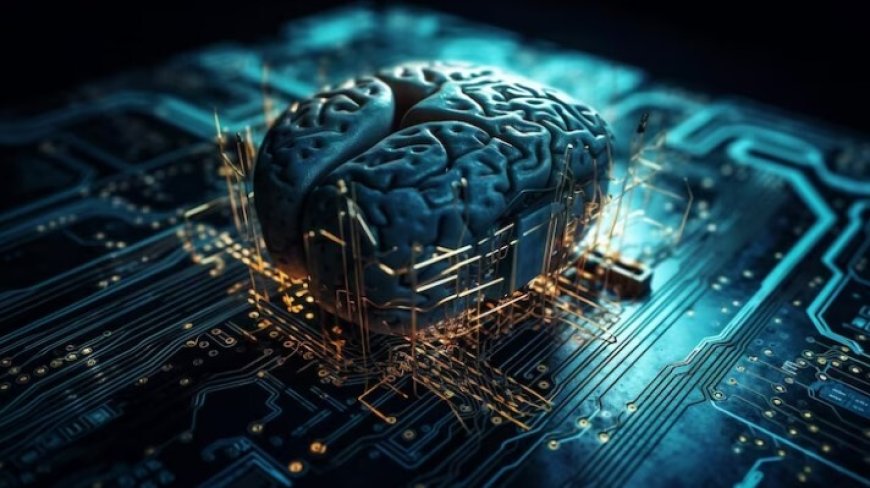In the vast realm of technological advancements, one concept stands out as a beacon of innovation: The Future of AI Technology. This article delves into the transformative potential of artificial intelligence, examining its current state and projecting the groundbreaking developments awaiting us.
Table of Contents
Unveiling the Potential: Understanding AI Technology
The foundation of The Future of Artificial Intelligence Technology lies in its ability to mimic human intelligence and perform tasks that traditionally require human cognition. From predictive analytics to natural language processing, AI encompasses a spectrum of capabilities that continue to expand with each passing day.
Breaking Boundaries: Applications Across Industries
The integration of AI technology transcends boundaries, permeating various sectors with its unprecedented capabilities. From healthcare to finance, education to entertainment, AI’s impact is evident in enhancing efficiency, optimizing processes, and driving innovation.
Innovations on the Horizon: Emerging Trends in AI
As we venture into The Future of Artificial Intelligence Technology, several trends emerge on the horizon, promising to redefine our understanding of artificial intelligence. These include advancements in machine learning, deep learning algorithms, autonomous systems, and the Internet of Things (IoT).
Also Read : Protect Your Data: 7 Essential Cybersecurity Tips
Ethical Considerations: Navigating the AI Landscape
Amidst the excitement surrounding AI’s potential, ethical considerations loom large. Questions regarding data privacy, algorithmic biases, and societal implications demand careful examination as we chart the course for The Future of Artificial Intelligence Technology.
Transformative Impact: Artificial Intelligence‘s Role in Society
The societal impact of The Future of Artificial Intelligence Technology, cannot be overstated. From reshaping labor markets to redefining human interaction, Artificial Intelligence ‘s influence permeates every facet of our lives. Understanding and harnessing its potential is crucial for navigating the complexities of a rapidly evolving technological landscape.

Pioneering Innovations: Case Studies in AI Advancements
Examining real-world applications provides invaluable insights into The Future of Artificial Intelligence Technology. Case studies highlighting successful implementations across diverse industries offer tangible examples of AI’s transformative power in action.
Bridging the Gap: Addressing Challenges in AI Development
Despite its immense potential, the development of AI technology is not without its challenges. Overcoming issues such as data scarcity, algorithmic biases, and regulatory hurdles is essential for realizing the full benefits of The Future of Artificial Intelligence Technology.
Empowering the Future: Education and Skill Development
As AI continues to proliferate, investing in education and skill development becomes paramount. Equipping individuals with the knowledge and expertise to harness AI’s potential ensures a workforce ready to thrive in The Future of Artificial Intelligence Technology.
Collaboration and Innovation: Shaping Tomorrow’s Landscape
The journey towards The Future of Artificial Intelligence Technology is a collaborative endeavor that requires synergy across industries, academia, and governments. By fostering innovation and nurturing partnerships, we can collectively shape a future where AI serves as a force for good.
What are the current limitations of AI technology?
Despite its advancements, AI technology still faces challenges such as interpretability, scalability, and ethical considerations.
How is AI technology impacting job markets?
AI technology is reshaping job markets by automating routine tasks, creating new job opportunities, and necessitating upskilling and reskilling initiatives.
Can AI technology be biased?
Yes, AI algorithms can exhibit biases based on the data they are trained on, highlighting the importance of ethical AI development and algorithmic transparency.
What are the key ethical considerations in AI development?
Ethical considerations in AI development include issues related to privacy, fairness, accountability, and transparency.
FAQs
- What are the current limitations of AI technology?
- Despite its advancements, AI technology still faces challenges such as interpretability, scalability, and ethical considerations.
- How is AI technology impacting job markets?
- AI technology is reshaping job markets by automating routine tasks, creating new job opportunities, and necessitating upskilling and reskilling initiatives.
- Can AI technology be biased?
- Yes, AI algorithms can exhibit biases based on the data they are trained on, highlighting the importance of ethical AI development and algorithmic transparency.
- What are the key ethical considerations in AI development?
- Ethical considerations in AI development include issues related to privacy, fairness, accountability, and transparency.
- How can businesses leverage AI technology to gain a competitive edge?
- Businesses can leverage AI technology to enhance decision-making, optimize operations, personalize customer experiences, and drive innovation.
- What role does regulation play in shaping the future of AI technology?
- Regulation plays a crucial role in addressing ethical and societal concerns, ensuring responsible AI development, and fostering trust among stakeholders.
Conclusion
In conclusion, The Future of Artificial Intelligence Technology holds immense promise, with the potential to revolutionize industries, empower individuals, and drive societal progress. By embracing innovation, addressing challenges, and fostering collaboration, we can navigate the complexities of The Future of Artificial Intelligence Technology and unlock a world of endless possibilities.







